Ecuadorians are so kind and they love to laugh. They also love to have a good time. One day, I’m sitting alone in the living room of my host family’s house during our August training back in Quito, and there’s a knock at the door. I open it to 18 people who walk in with a giant cake, a gallon of Fanta and bags of puffed cheetos. Turns out, this day is Santa Rosa and that means a party for all people named Rosa. The grandmother of my family is named Rosa and its a surprise for her. Luckily, my family came home with her a few minutes later and the party began. You have to love a country that has built in so many celebrations!
Greetings
“Hola mi amor”… “mi veci”… “mi hija”… “mi corazón”. These are the terms of endearment people use to greet each other. “Hello my love”, “my neighbor”, “my daughter”, “my heart” – I’ve heard them all from friends, and strangers alike, even people younger than I. What’s not to like about a greeting that makes you feel so loved?
Cheap Produce
I stop at a vegetable stand in the market to buy a head of broccoli. But then I see the tomatoes and buy 3. The swiss chard looks really fresh, so I get a handful of stalks. And an eggplant, a bag of peas, a handful of radishes, and lettuce for a salad. Finally, red beets- so tempting, I take three of those too. The saleslady throws in a “yapa” of cilantro- an extra for free. Perfect. How much? $3.20.
Ecuadorians are Connected to their Food Source
Walk down the street and look into any restaurant and it is common to see a whole pig roasting or splayed out for carving, and whole chickens or cuys (guinea pig) on a spit. Ecuadorians know where their meat comes from (because it was probably killed behind the house that morning), and they know about growing produce for their families. A large part of the population own or work on small farms, or are involved in the distribution of food. Although Ecuador doesn’t have “third world chicken buses”, I did spot a box of chicks getting brought home from the market.
Ecuadorians are Politically Active
Everybody knows the history of their country and they keep themselves informed about current politics, and policies of their government at all levels. And they have an opinion about it all, too. The idea that it is their responsibility to be involved in their country is inbred since they are little. This most definitely includes women. 42% of Ecuador’s Parliament is made up of women (this ranks 9th in the world). I’ve sat through several heated discussions involving both men and women regarding the politics of their country and abroad. I think it is great that they are so invested.
Ecuadorians are Hard Workers
They hustle for your money and usually service in stores or restaurants is very quick. They are also entrepreneurial, designing creative ways to make money. For example, a woman who needs to make a living stands on the street corner every morning with a juice press, bags and bags of fresh oranges and two baby carriages. I watch her juggle the babies, and the oranges as she presses fresh juice into bottles and seals them with a twist. I buy one for $1.00.
If they have a task to do, they do it. This man needs to knock down the building. So he and his friend are taking it down- with sledge hammers and mallets- brick by brick. I’ve spoken in other posts about the lack of school resources. You’d be amazed at what people create out of cardboard boxes, plastic bottles and colored foam.
I walk past a dirt side street everyday. One day I noticed some men kneeling down and leveling parts of it with piles of dirt and hand shovels. The next day, I saw several stacks of pavers on pallets, obviously having just been delivered. When I looked at the far end of the street, I noticed several men kneeling down, placing brick by brick. In the United States, if we want to build a road, we have to request several designs, put out a contract, hire the lowest bidder, and wait several months before paying thousands of dollars for the heavy equipment and crew to build the road.
Ecuador does have systems to collect and handle their solid waste. In the cities, there are garbage cans and people do use them. But I also see a lot of people just throw their waste on the ground. In every ditch, every empty lot, and every canyon, there is so much plastic garbage: wrappers, take-away food containers, bottles, etc. I step over it all on my walks around town. In such a beautiful country, it makes me sad to see so much garbage strewn across the ground in every direction.
There isn’t a culture of picking up your dog poop here. Large piles decorate the sidewalk and you have to stay diligent when you walk down the street. Since I live in the outskirts of the city, cow patties are also common to find on the sidewalk.
Starch, Starch, Fat, and More Starch
Mountains of rice, piles of potatoes, and corn in every variation is served at every meal in the Sierra Region. And don’t forget the bread rolls and the banana for dessert. I like the food here, but I really search out opportunities to eat something with a different flavor. It is possible to find some Columbian and Venezuelan restaurants, but they’re only open for dinner. Chinese is also common here, but unfortunately, it’s heavy on rice and salt. And of course, “American food” is a favorite. If I wanted to fill up on french fries, hot dogs, fried chicken, pizza or hamburgers, then there is plenty of selection on every corner.
Things That Are Just Hard:
Differences in Communication Styles
Looking for My People
As I’m working within the Peace Corps, my school, my home, the University, my Spanish classes, my art classes and my inter-cambios, I’m meeting a lot of people from both the US and Ecuador. But in all my interactions here in Ibarra, I haven’t yet found “my people”. That’s hard. I’m living a fun adventure, but sometimes, it’s a little lonely. I’m working on getting used to that, too.
Stay Tuned!

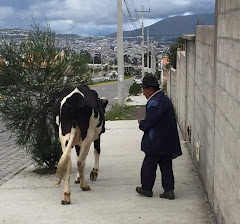
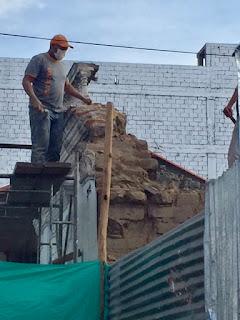
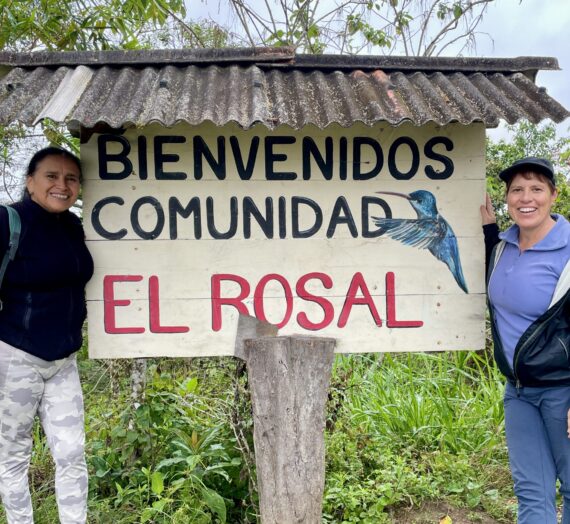
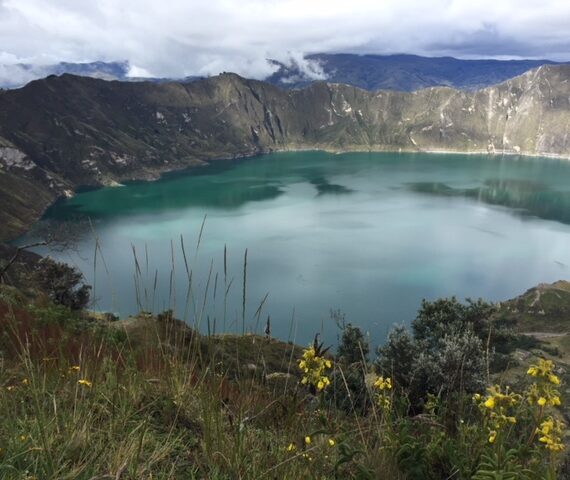
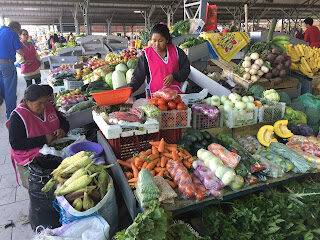
Lyssa
I really appreciate this candid description of what is wonderful and challenging about living in a different place and culture. I remember feeling many of the same kinds of joys and frustrations when living abroad in various places, reveling in what was amazing in each place, but struggling with things like garbage and very different social mores. It's a lot to be processing every day! I can identify with that loneliness and sense of isolation, while trying so hard to connect. I love that you're taking art classes!